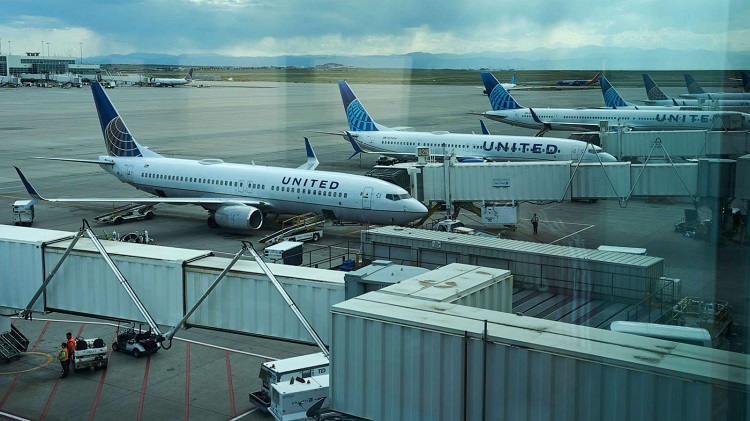United Airlines Issues Nationwide Groundstop on all Flights:abc

On a fateful day, the skies seemed to halt as United Airlines, one of the world’s major carriers, initiated an unprecedented move—a nationwide groundstop on all its flights. The announcement, broadcasted across news outlets and social media platforms, sent ripples through the travel industry, leaving passengers stranded, plans disrupted, and questions looming over the aviation giant.
The decision to groundstop an entire fleet is not one taken lightly. Airlines meticulously coordinate thousands of flights daily, balancing operational logistics, passenger convenience, and safety protocols. So, what triggered this decisive action from United Airlines, plunging countless travelers into uncertainty?
The Precipitating Factors
The rationale behind such a drastic measure often boils down to ensuring passenger safety, and this case with United Airlines was no exception. A cascade of reasons, ranging from technical glitches to adverse weather conditions or even regulatory compliance issues, can prompt such an extensive operational pause.
Technical malfunctions or system failures within an airline’s infrastructure can cripple their ability to manage flights effectively. A minor glitch in a critical system could potentially cascade into larger operational breakdowns, posing serious safety risks.
Moreover, external factors like severe weather disturbances or unforeseen natural disasters could threaten flight safety. Airlines prioritize passenger security above all else, and in the face of such circumstances, grounding flights becomes a prudent measure to mitigate risks.
Impact on Passengers and Operations
A nationwide groundstop has a profound impact, not only on the affected airline but also on the entire air travel ecosystem. Passengers find themselves stranded at airports, with their itineraries disrupted, business meetings missed, and vacations deferred. Such disruptions not only incur financial losses but also lead to emotional stress and inconvenience.
For United Airlines, operational disruptions ripple through their entire network. Flight crews face scheduling challenges, aircraft remain grounded, and logistical nightmares arise in managing the backlog of flights once operations resume. The financial repercussions of such shutdowns can be substantial, impacting revenue and investor confidence.
Response and Recovery
When a major airline implements a nationwide groundstop, the focus shifts to recovery. Immediate steps include accommodating affected passengers on alternate flights, providing compensation or lodging where necessary, and ensuring transparent communication regarding the situation and potential resumption of services.
United Airlines, like other major carriers, has dedicated teams trained to handle such crises. Their priority is not only to resume operations safely but also to rebuild passenger trust and confidence in their services.
The Broader Implications
Beyond the immediate effects, such events shed light on the vulnerabilities within the aviation industry. They underline the importance of robust infrastructure, crisis management protocols, and the need for effective communication with passengers during tumultuous times.
Regulatory bodies often scrutinize such incidents, looking to ensure that airlines maintain the highest safety standards and are equipped to handle unforeseen challenges.
Looking Ahead
As the aviation industry evolves, leveraging advanced technology and refining safety protocols, instances of nationwide groundstops might become rarer. However, the unpredictable nature of external factors reminds us that preparedness and swift response mechanisms are paramount.
Conclusion
United Airlines’ decision to groundstop all flights showcased their commitment to passenger safety. While the immediate aftermath was chaotic, the incident serves as a reminder of the complexities and challenges inherent in air travel.
In the aftermath of such incidents, the focus remains on learning from the experience, bolstering resilience, and fortifying the industry against future disruptions. Air travel, a testament to human ingenuity and connectivity, perseveres through challenges, adapting and striving to ensure safer skies for all.






